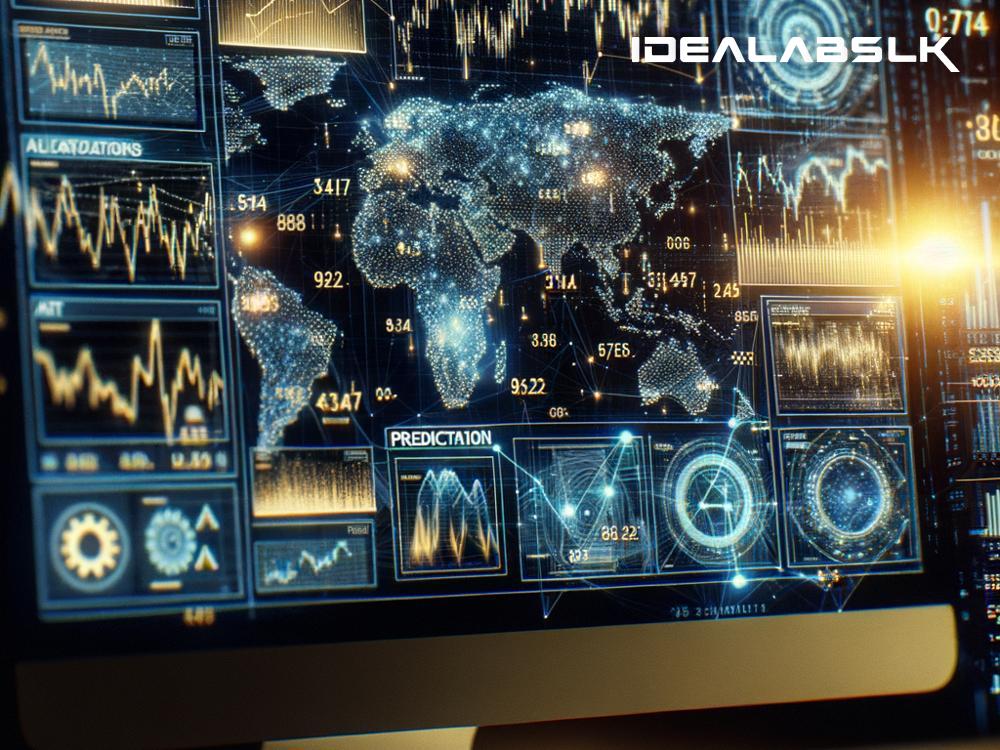AI for Trading: Revolutionizing High-Frequency Trading
In today's fast-paced world, the financial markets are more dynamic and competitive than ever before. Traders and investors constantly seek that edge to outperform their rivals and achieve superior returns. High-frequency trading (HFT), a method that uses powerful computer programs to transact a large number of orders within fractions of a second, is at the forefront of this quest. And the latest game-changer in this high-stakes arena? Artificial intelligence (AI).
The Evolution into AI-Driven High-Frequency Trading
Traditionally, high-frequency trading strategies were based on relatively straightforward algorithms that followed set rules, like buying a stock when its price dropped to a certain level. However, as technology has evolved, so has the complexity of the markets and the strategies to navigate them. This is where AI comes in, transforming HFT from a speed contest into a highly sophisticated battle of wits.
What is AI, and How Does it Fit into Trading?
At its heart, AI involves creating computer programs that can learn, reason, and make decisions or predictions almost like a human. For trading, AI systems can sift through massive amounts of market data, identify patterns invisible to human traders, predict market movements, and execute trades at speeds and volumes that are humanly impossible.
The AI Advantage in High-Frequency Trading
One of the standout features of AI in trading is its ability to learn and adapt. Unlike static algorithms, AI systems can adjust their strategies based on new data, effectively learning from the market in real-time. This ability to evolve makes AI incredibly potent in the fast-moving world of high-frequency trading.
Another advantage of AI is its capacity to process and analyze vast quantities of data from various sources. This includes traditional market data, news articles, social media feeds, and even weather reports, enabling a more informed and nuanced trading strategy.
Furthermore, AI can execute complex trading strategies that involve analyzing the relationships between multiple financial instruments, such as stocks, bonds, currencies, and commodities. This might involve, for example, buying a stock in a company and simultaneously short-selling the stock of a competitor, based on an AI prediction that the former will outperform the latter.
The Impact of AI on the Trading Landscape
The introduction of AI has significantly leveled the playing field in high-frequency trading. While speed is still a crucial factor, the ability to quickly analyze and act on complex data is becoming just as important. This shift has encouraged more firms to enter the HFT space, fostering greater competition but also driving innovation.
AI-driven HFT also poses challenges, particularly related to market stability. Because AI systems can execute trades so rapidly and in such large volumes, they have the potential to amplify market movements—both up and down. This has led to calls for increased regulation and oversight to prevent market manipulation or instability.
Ethical Considerations and the Future of AI in Trading
As with any technology, AI's application in trading raises ethical questions. The use of AI in HFT can create an advantage for those firms with the resources to develop and deploy these advanced systems, potentially sidelining smaller players and individual investors. There are also concerns about privacy, as AI systems often rely on large swaths of data, including potentially sensitive information.
Looking ahead, AI is expected to become even more ingrained in high-frequency trading, with ongoing advances in machine learning and data analytics opening up new possibilities. As AI systems become more sophisticated, they may also incorporate elements of artificial general intelligence (AGI), enabling them to understand and interpret the world in a way that's more akin to human reasoning.
Conclusion
AI is revolutionizing high-frequency trading, offering unprecedented abilities to analyze data, predict market movements, and execute trades. This innovation is not without its challenges and ethical considerations, but one thing is clear: AI is reshaping the landscape of the financial markets, heralding a new era of trading where information, speed, and intelligence converge. As we move forward, the intersection of AI and trading will likely continue to evolve, promising exciting—and sometimes daunting—prospects for the future of finance.

